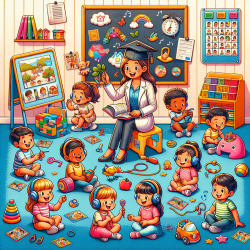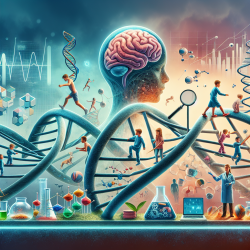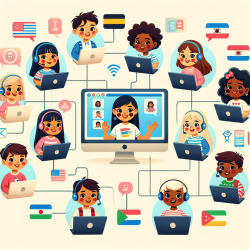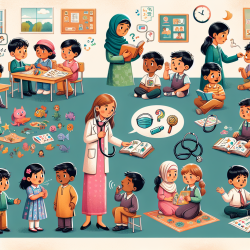Unlock the Secret to Cognitive Liberty: How Psychedelic Humanities Can Revolutionize Your Practice!
In the ever-evolving landscape of therapy and education, professionals are constantly seeking innovative ways to enhance their practice and improve outcomes for children. A recent study titled Cognitive Liberty and the Psychedelic Humanities offers intriguing insights that can be leveraged to foster cognitive liberty and enrich the therapeutic process.
Understanding Cognitive Liberty
Cognitive liberty is a concept that emphasizes the right of individuals to use or abstain from using emerging neurotechnologies and psychedelics. This right is particularly significant in the context of speech language pathology, where innovative approaches can lead to groundbreaking improvements in children's cognitive and communicative abilities.
The Role of Psychedelic Humanities
The study highlights the potential of psychedelic humanities—a transdisciplinary approach that integrates philosophy, history, anthropology, and more—to broaden our understanding of consciousness and address ethical and social issues in scientific research. This approach can provide valuable insights into the therapeutic and philosophical uses of psychedelics, which have been shown to enhance cognitive processes and foster self-determination.
Implementing Research Outcomes in Practice
- Therapeutic Applications: Incorporating elements of psychedelic humanities into therapy can offer new perspectives on cognitive development and language acquisition. By exploring the philosophical uses of psychedelics, practitioners can gain a deeper understanding of consciousness and its impact on communication.
- Ethical Considerations: Emphasizing cognitive liberty in practice ensures that individuals have the autonomy to make informed decisions about their cognitive and communicative development. This approach aligns with the ethical principles of respecting patient autonomy and promoting informed consent.
- Cross-Disciplinary Collaboration: Engaging with the psychedelic humanities encourages collaboration across disciplines, fostering a more holistic understanding of cognitive and communicative processes. This can lead to more effective and innovative therapeutic strategies.
Encouraging Further Research
While the study provides a solid foundation for understanding the potential of psychedelic humanities, it also highlights the need for further research. Practitioners are encouraged to explore this field in greater depth, examining how these concepts can be applied to enhance therapeutic outcomes for children.
By embracing the principles of cognitive liberty and the psychedelic humanities, practitioners can unlock new possibilities for improving children's cognitive and communicative abilities. This approach not only enriches the therapeutic process but also empowers children to reach their full potential.
To read the original research paper, please follow this link: Cognitive liberty and the psychedelic humanities.










